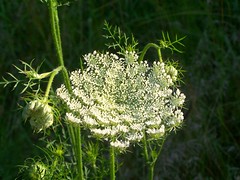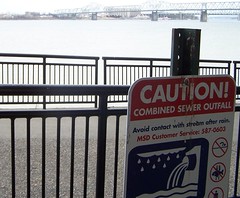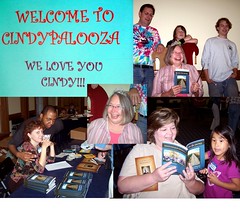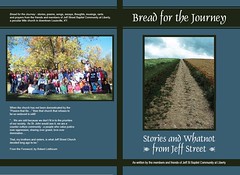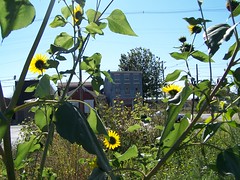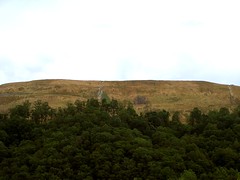Here are some of my thoughts on the usage of the word, gospel in the Bible. I am no theologian and didn't look into what more learned folk had to say about this, these are just my thoughts, for what they're worth.
1. While the word, gospel, means merely "good news" in the regular sense of the phrase, biblical authors seem to be using the word to mean some specific set of teachings/beliefs beyond just the regular sense. As if they appropriated the regular word as a shortcut term to mean something beyond just the regular sense. Again, that's just how it sounds to me.
For instance, when Mark begins his book, he says, "The beginning of the gospel of Jesus Christ, the Son of God." (Mark 1:1)
Or:
"For whoever wishes to save his life will lose it, but whoever loses his life for My sake and the gospel's will save it." (Mark 8:35)
Or:
"The Law and the Prophets were proclaimed until John; since that time the gospel of the kingdom of God has been preached, and everyone is forcing his way into it." (Luke 16:16)
It feels like, to me, that they're using the word gospel to mean something specific, instead of generically, good news about God, or God's Kingdom. Like in that last verse, as if BEFORE John, the body of teaching known as "the Law and the Prophets" were taught and AFTER John, the body of teaching known as "the gospel" was taught.
Perhaps someone more informed knows more about this contextually, I'm just offering up how it sounds to me.
2. The word, gospel is, in my estimation, tied fairly closely to Jubilee teachings and to matters of wealth and poverty in the four books of the Gospels.
In the just-quoted Luke 16 passage, the term comes up as Jesus is juxtapositioning the way of the Pharisees (who were "lovers of money") to the "gospel of the kingdom of God" (and, as an aside, what is Jesus indicating when he said, "and everyone is forcing his way into it..."?)
In Luke 4, where Jesus quotes the book of Isaiah and so announces the beginning of His ministry, Jesus says, "THE SPIRIT OF THE LORD IS UPON ME,BECAUSE HE ANOINTED ME TO PREACH THE GOSPEL TO THE POOR.HE HAS SENT ME TO PROCLAIM RELEASE TO THE CAPTIVES,AND RECOVERY OF SIGHT TO THE BLIND,TO SET FREE THOSE WHO ARE OPPRESSED, TO PROCLAIM THE FAVORABLE YEAR OF THE LORD."
In so doing, it seems to me that Jesus is saying that his ministry (and the teaching of the good news of the kingdom of God) is very much tied to preaching the gospel specifically to the poor and otherwise marginalized. Now, I'm not saying that I think that means that Jesus doesn't care about the rich, I'm just saying that this is how that verse (and others like it) come across. To me, anyway.
By my estimation, of the 17 times the word comes up in the four Gospels, 9/17 of the time, it is used fairly explicitly in connection with the poor, sick and marginalized. An additional four times (or 13/17), there is a monetary subtext in the passages surrounding the use of the word. Then, in four instances (4/17), there appears to be no direct connection to wealth and poverty.
Another example, even before Jesus we see that John the Baptist is preaching "the gospel" (in Luke 3) and tying it specifically to economic conditions. When the people are asking John of what they should repent and how they should change, John tells them (quite gruffly) if a person has two tunics, he should share one of them with those in need. "and he/she who has food should do likewise." Tax collectors and soldiers should not over-collect and the soldiers should be content with their wages.
This passage concludes, "So with many other exhortations he preached the gospel to the people." which suggests to me, "SO, with many other similar exhortations, John preached the good news..." The gospel, for John the Baptist, seems quite connected to economic practices, with economic justice and living simply.
Indeed, when John (in prison) sends some followers to check out Jesus, Jesus tells them to tell John, "Go and report to John what you have seen and heard: the BLIND RECEIVE SIGHT, the lame walk, the lepers are cleansed, and the deaf hear, the dead are raised up, the POOR HAVE THE GOSPEL PREACHED TO THEM."
3. In Luke 9, we see Jesus sending the twelve apostles out to preach the good news and proclaim the kingdom of God. That phrase seems to be used interchangeably. In verse 2, Jesus sends them out to "proclaim the kingdom of God and to perform healing." In verse 6, it is said that they began "preaching the gospel and healing everywhere."
It seems to me that the word, gospel, as used in the four Gospels is very associated with proclaiming the Kingdom of God, which IS good news for the poor and for the ill and marginalized. So, it seems to me, the question is, WHAT is the kingdom of God or the kingdom of Heaven so often referenced in connection with the gospel?
So, perhaps Eric is on to something inasmuch as it might be important for us to discern what exactly is meant when the terms "kingdom of God" and "kingdom of Heaven" are being used.
4. The word, gospel, as used in the rest of the NT, has a different flavor to it - less attached to issues of poverty and marginalization than in the Gospels. Because this post is already long, I'll consider that further on another day. But if anyone has thoughts as to why this is, I'll be glad to hear them.
And, of course, I'm glad to hear further thoughts on any of my opinions on the gospel as found in the Gospels.
Thursday, July 31, 2008
Friday, July 25, 2008
The Nature of the Gospel, continued...
[Disclaimer: This series almost sounds like Bible study. For those who are put off by that sort of religiosity, my apologies. But let's consider this a literary exercise - here's an historic piece of literature and we have all of these preconceived notions of what it's talking about. But what is it really saying? hmmm...]
In the most instances of the use of the word, gospel is just part of the sentence, giving no hint of what is intended by the word. Some examples:
Jesus was going throughout all Galilee, teaching in their synagogues and proclaiming the gospel of the kingdom and healing every kind of disease and every kind of sickness...
~Matt 4:23
Jesus was going through all the cities and villages, teaching in their synagogues and proclaiming the gospel of the kingdom and healing every kind of disease and every kind of sickness
~Matt 9:35 (almost an exact repeat of the previous instance)
the BLIND RECEIVE SIGHT and the lame walk, the lepers are cleansed and the deaf hear, the dead are raised up, and the POOR HAVE THE GOSPEL PREACHED TO THEM
~Matt 11:5
The beginning of the gospel of Jesus Christ, the Son of God.
~Mark 1:1
Now after John had been taken into custody, Jesus came into Galilee, preaching the gospel of God, and saying, "The time is fulfilled, and the kingdom of God is at hand; repent and believe in the gospel.
~Mark 1:14-15
The gospel must first be preached to all the nations.
~Mark 13:10
The Law and the Prophets were proclaimed until John; since that time the gospel of the kingdom of God has been preached, and everyone is forcing his way into it.
~Luke 16:16
And on it goes.
Now, if we substitute the meaning for the word (ie, good news, for gospel) it would sound like this:
Jesus was going throughout all Galilee, teaching in their synagogues and proclaiming the good news of the kingdom...
The beginning of the good news of Jesus Christ, the Son of God...
Now after John had been taken into custody, Jesus came into Galilee, preaching the good news of God, and saying, "The time is fulfilled, and the kingdom of God is at hand; repent and believe in the good news..."
The Law and the Prophets were proclaimed until John; since that time the good news of the kingdom of God has been preached, and everyone is forcing his way into it...
You can find a whole listing of the usages of the word here. Reading through these (especially the instances in Matt, Mark, Luke and John), and the context of each one, what commonalities do you find? What intrigues you? What does the word seem to suggest it's talking about to you?
In the most instances of the use of the word, gospel is just part of the sentence, giving no hint of what is intended by the word. Some examples:
Jesus was going throughout all Galilee, teaching in their synagogues and proclaiming the gospel of the kingdom and healing every kind of disease and every kind of sickness...
~Matt 4:23
Jesus was going through all the cities and villages, teaching in their synagogues and proclaiming the gospel of the kingdom and healing every kind of disease and every kind of sickness
~Matt 9:35 (almost an exact repeat of the previous instance)
the BLIND RECEIVE SIGHT and the lame walk, the lepers are cleansed and the deaf hear, the dead are raised up, and the POOR HAVE THE GOSPEL PREACHED TO THEM
~Matt 11:5
The beginning of the gospel of Jesus Christ, the Son of God.
~Mark 1:1
Now after John had been taken into custody, Jesus came into Galilee, preaching the gospel of God, and saying, "The time is fulfilled, and the kingdom of God is at hand; repent and believe in the gospel.
~Mark 1:14-15
The gospel must first be preached to all the nations.
~Mark 13:10
The Law and the Prophets were proclaimed until John; since that time the gospel of the kingdom of God has been preached, and everyone is forcing his way into it.
~Luke 16:16
And on it goes.
Now, if we substitute the meaning for the word (ie, good news, for gospel) it would sound like this:
Jesus was going throughout all Galilee, teaching in their synagogues and proclaiming the good news of the kingdom...
The beginning of the good news of Jesus Christ, the Son of God...
Now after John had been taken into custody, Jesus came into Galilee, preaching the good news of God, and saying, "The time is fulfilled, and the kingdom of God is at hand; repent and believe in the good news..."
The Law and the Prophets were proclaimed until John; since that time the good news of the kingdom of God has been preached, and everyone is forcing his way into it...
You can find a whole listing of the usages of the word here. Reading through these (especially the instances in Matt, Mark, Luke and John), and the context of each one, what commonalities do you find? What intrigues you? What does the word seem to suggest it's talking about to you?
The Nature of the Gospel
Having spent a week considering in a little detail that Gospel of Nature, allow me to flip that a bit and give some thought to the Nature of the Gospel. The Gospel, that is, as it appears in the Bible.
According to today's evangelicals, "The Gospel of Christ" is fairly specifically this:
* God loved the world and sent Jesus to earth to live amongst us, to die for us and to raise from the dead
* Jesus died on a cross, shedding his blood for sinners, who were otherwise doomed (being imperfect sinners keeping us out of God's presence
* His shed blood "paid the price" for the sinner's debt
* We are saved by God's grace IF we accept the gift of heaven, and we are able to be saved because Jesus' blood - which was perfect - paid the price that God requires for sin
* All we need to do is confess our sins, accept the gift and make Jesus Lord of our lives
This is the Gospel as fairly specifically understood by most modern evangelicals, but what I'm wondering is, is that what was understood by Jesus and the disciples when they used that word?
======
Let us consider the word, gospel.
The word, gospel appears in the Bible 97 times in the New American Standard Translation. In researching a bit, every reference I found said that the word translated gospel means simply, “good news,” as in the every day sense of the term.
“Hey! I heard the good news about your job promotion! Way to go!”
You know, good news. Welcomed information of the sort that makes one glad. Good news. From what I read, there is nothing mystical or otherworldly in the Greek word itself that is translated gospel.
The original Greek for this is "Euangelisdzo" (from which we get evangelism). It literally means "Glad Tidings" in the noun form and "Publish Glad tidings" in the verb cognate form.
source
The English noun gospel comes is the translation of the Greek word. It's normally translated as "good news" or as a verb to preach the good news. Interesting enough the word isn't common in Greek Literature. One of the best known usages is in Aristophanes. It is generally used for bringing news of victories of other events.
source
All 97 instances are in the New Testament. Twenty of them are in the books of the Gospels (Matthew, Mark, Luke and John), eight are in the book of Acts (describing the Acts of the Early Church), 64 times in Paul’s letters, twice in Peter’s epistles and one instance in the Book of Revelation.
According to today's evangelicals, "The Gospel of Christ" is fairly specifically this:
* God loved the world and sent Jesus to earth to live amongst us, to die for us and to raise from the dead
* Jesus died on a cross, shedding his blood for sinners, who were otherwise doomed (being imperfect sinners keeping us out of God's presence
* His shed blood "paid the price" for the sinner's debt
* We are saved by God's grace IF we accept the gift of heaven, and we are able to be saved because Jesus' blood - which was perfect - paid the price that God requires for sin
* All we need to do is confess our sins, accept the gift and make Jesus Lord of our lives
This is the Gospel as fairly specifically understood by most modern evangelicals, but what I'm wondering is, is that what was understood by Jesus and the disciples when they used that word?
======
Let us consider the word, gospel.
The word, gospel appears in the Bible 97 times in the New American Standard Translation. In researching a bit, every reference I found said that the word translated gospel means simply, “good news,” as in the every day sense of the term.
“Hey! I heard the good news about your job promotion! Way to go!”
You know, good news. Welcomed information of the sort that makes one glad. Good news. From what I read, there is nothing mystical or otherworldly in the Greek word itself that is translated gospel.
The original Greek for this is "Euangelisdzo" (from which we get evangelism). It literally means "Glad Tidings" in the noun form and "Publish Glad tidings" in the verb cognate form.
source
The English noun gospel comes is the translation of the Greek word
source
All 97 instances are in the New Testament. Twenty of them are in the books of the Gospels (Matthew, Mark, Luke and John), eight are in the book of Acts (describing the Acts of the Early Church), 64 times in Paul’s letters, twice in Peter’s epistles and one instance in the Book of Revelation.
Monday, July 21, 2008
Birth of a Civilization
In the previous post, the question was raised as to whether or not civilization has a corrupting nature. It would be my contention that civilization has a tendency towards corruption - that is, towards degrading humanity and the world.
Corrupt, in these senses of the word:
1. debased in character; depraved
2. to alter for the worse; debase.
3. to mar; spoil.
Some specific examples:
Over 200 years ago, white settlers began establishing a fort and homes at the Falls of the Ohio, at the confluence of Beargrass Creek. Out of the then-turbulent waters of the Ohio, Louisville was born.
We promptly set up homes and soon were discharging our sewage directly into Beargrass Creek and the Ohio River. They were convenient disposal systems.
And, I suppose that probably worked (sort of), as long as the homes were not too concentrated. Animals use the great outdoors to dispose of their waste all the time and it is quite sanitary (of course, they don't usually dump their wastes right into the water supply!).
But the thing is, this is NOT a workable solution once you establish a true civilization with lots of folk around. It just leaves you with toxic, useless water.
And eventually, Louisville realized this and began trying to create a sewage system that wasn't toxic and destructive. The problem was/is, that once you begin down that road, it becomes difficult to change directions. It requires deliberate and expensive efforts and agreement to put up the expense and, in our case, some 200 years later, we're still trying to end this corruptive practice.
Progress - civilization - need not be self-destructive, but it tends to be.
Another 100 or so years later, automobiles start coming along. People could then travel from place to place more quickly and without the trouble of dealing with horses or the effort of a bicycle or of walking.
And, as long as there were only a few automobiles around, the dangers and pollution caused by cars was not a problem.
But, when everyone owns a car, then suddenly it is not safe to drive or walk or bicycle around the city. Our cities sprawl, costing billions of dollars to the citizenry. Our air and water become more toxic, with all those accompanying losses and costs. The presence of many cars soon creates a self-necessitating system where, well, you NEED a car to get around. It's no longer so safe to walk or bike and things are spread out more so it is no longer so possible to walk or bike.
Civilization created a system that was self-destructive and "necessary," we built in a dependence upon a corruptive system of transportation.
Did/does this auto culture have a positive side? Sure. You can get places more quickly. In greater comfort. With less physical work (although you certainly have to make up with that in MORE work to pay for the "convenience" of the auto). I'm not denying that civilization, in delivering automobiles or a way of disposing of waste, did not give us some advancements.
The question is: How corruptive was our approach to civilization? At what cost did these advances come? Is this corruption part and parcel of civilization and a necessary price to pay for the advances of civilization? OR, could we be civilized at a more reasonable, less corrupting cost?
Personally, I don't think that civilization HAS to be more corrupting than beneficial (and I don't believe I'm even making the case that it is MORE corrupting than not, just that it's too corrupting). We COULD plan more wisely. We COULD choose personally and societally to make living in harmony with nature a higher priority. It's just that it tends to, in part because of our own flawed humanity and in part due to a lack of deliberate intent to plan responsibly - living a laissez faire life.
Civilization tends toward corruptive practices (practices that accompany and are part and parcel of the "advances" of civilization) and avoiding that takes serious, deliberate intent and planning and cooperation. And not a little wisdom.
Corrupt, in these senses of the word:
1. debased in character; depraved
2. to alter for the worse; debase.
3. to mar; spoil.
Some specific examples:
Over 200 years ago, white settlers began establishing a fort and homes at the Falls of the Ohio, at the confluence of Beargrass Creek. Out of the then-turbulent waters of the Ohio, Louisville was born.
We promptly set up homes and soon were discharging our sewage directly into Beargrass Creek and the Ohio River. They were convenient disposal systems.
And, I suppose that probably worked (sort of), as long as the homes were not too concentrated. Animals use the great outdoors to dispose of their waste all the time and it is quite sanitary (of course, they don't usually dump their wastes right into the water supply!).
But the thing is, this is NOT a workable solution once you establish a true civilization with lots of folk around. It just leaves you with toxic, useless water.
And eventually, Louisville realized this and began trying to create a sewage system that wasn't toxic and destructive. The problem was/is, that once you begin down that road, it becomes difficult to change directions. It requires deliberate and expensive efforts and agreement to put up the expense and, in our case, some 200 years later, we're still trying to end this corruptive practice.
Progress - civilization - need not be self-destructive, but it tends to be.
Another 100 or so years later, automobiles start coming along. People could then travel from place to place more quickly and without the trouble of dealing with horses or the effort of a bicycle or of walking.
And, as long as there were only a few automobiles around, the dangers and pollution caused by cars was not a problem.
But, when everyone owns a car, then suddenly it is not safe to drive or walk or bicycle around the city. Our cities sprawl, costing billions of dollars to the citizenry. Our air and water become more toxic, with all those accompanying losses and costs. The presence of many cars soon creates a self-necessitating system where, well, you NEED a car to get around. It's no longer so safe to walk or bike and things are spread out more so it is no longer so possible to walk or bike.
Civilization created a system that was self-destructive and "necessary," we built in a dependence upon a corruptive system of transportation.
Did/does this auto culture have a positive side? Sure. You can get places more quickly. In greater comfort. With less physical work (although you certainly have to make up with that in MORE work to pay for the "convenience" of the auto). I'm not denying that civilization, in delivering automobiles or a way of disposing of waste, did not give us some advancements.
The question is: How corruptive was our approach to civilization? At what cost did these advances come? Is this corruption part and parcel of civilization and a necessary price to pay for the advances of civilization? OR, could we be civilized at a more reasonable, less corrupting cost?
Personally, I don't think that civilization HAS to be more corrupting than beneficial (and I don't believe I'm even making the case that it is MORE corrupting than not, just that it's too corrupting). We COULD plan more wisely. We COULD choose personally and societally to make living in harmony with nature a higher priority. It's just that it tends to, in part because of our own flawed humanity and in part due to a lack of deliberate intent to plan responsibly - living a laissez faire life.
Civilization tends toward corruptive practices (practices that accompany and are part and parcel of the "advances" of civilization) and avoiding that takes serious, deliberate intent and planning and cooperation. And not a little wisdom.
Wednesday, July 16, 2008
In the Temple of God
The Gospel of Nature...
John Burroughs wrote, in 1900, The Gospel of Nature, in which he said:
The other day a clergyman who described himself as a preacher of the gospel of Christ wrote, asking me to come and talk to his people on the gospel of Nature. The request set me to thinking whether or not Nature has any gospel in the sense the clergyman had in mind, any message that is likely to be especially comforting to the average orthodox religious person. I suppose the parson wished me to tell his flock what I had found in Nature that was a strength or a solace to myself.
What had all my many years of journeyings to Nature yielded me that would supplement or reinforce the gospel he was preaching? Had the birds taught me any valuable lessons? Had the four-footed beasts? Had the insects? Had the flowers, the trees, the soil, the coming and the going of the seasons? Had I really found sermons in stones, books in running brooks and good in everything? Had the lilies of the field, that neither toil nor spin, and yet are more royally clad than Solomon in all his glory, helped me in any way to clothe myself with humility, with justice, with truthfulness?
It is not easy for one to say just what he owes to all these things. Natural influences work indirectly as well as directly, they work upon the subconscious, as well as upon the conscious, self. That I am a saner, healthier, more contented man, with true standards of life for all my loiterings in the fields and woods, I am fully convinced.
That I am less social, less interested in my neighbors and in the body politic, more inclined to shirk civic and social responsibilities and to stop my ears against the brawling of the reformers, is perhaps equally true.
It appears that William Wordsworth had some thoughts along these lines, as well, as has a writer with which I am unfamiliar - Prentice Mulford.
CORRECTION:
In the introduction to a collection of Mulford (found here), the editor wrote:
Man is born natural and civilisation makes him artificial. He is born in touch with Nature and life under the open sky and in the green fields. Civilisation draws him to courts and towns. Mankind is born to liberty and equality: civilisation makes him either a tyrant on the one hand or a slave on the other. The thought underlying this gospel, whether preached by Christ or by Rousseau, or today by Edward Carpenter in his Civilisation, its Cause and Cure, contrasted as the characters of the preachers will appear, is essentially the same.
Why were the Scribes and Pharisees hypocrites? Why, except because they had turned from the spirit to the letter, from Nature to artificiality?
I love this line of thought and will certainly be reading these essays/books.
How about you? Have you read Burroughs, Wordsworth or Mulford (or others) on this topic of the Gospel of Nature? Do you have thoughts, yourself, on the Good News of the Creation? How have I missed these writings before now?
John Burroughs wrote, in 1900, The Gospel of Nature, in which he said:
The other day a clergyman who described himself as a preacher of the gospel of Christ wrote, asking me to come and talk to his people on the gospel of Nature. The request set me to thinking whether or not Nature has any gospel in the sense the clergyman had in mind, any message that is likely to be especially comforting to the average orthodox religious person. I suppose the parson wished me to tell his flock what I had found in Nature that was a strength or a solace to myself.
What had all my many years of journeyings to Nature yielded me that would supplement or reinforce the gospel he was preaching? Had the birds taught me any valuable lessons? Had the four-footed beasts? Had the insects? Had the flowers, the trees, the soil, the coming and the going of the seasons? Had I really found sermons in stones, books in running brooks and good in everything? Had the lilies of the field, that neither toil nor spin, and yet are more royally clad than Solomon in all his glory, helped me in any way to clothe myself with humility, with justice, with truthfulness?
It is not easy for one to say just what he owes to all these things. Natural influences work indirectly as well as directly, they work upon the subconscious, as well as upon the conscious, self. That I am a saner, healthier, more contented man, with true standards of life for all my loiterings in the fields and woods, I am fully convinced.
That I am less social, less interested in my neighbors and in the body politic, more inclined to shirk civic and social responsibilities and to stop my ears against the brawling of the reformers, is perhaps equally true.
It appears that William Wordsworth had some thoughts along these lines, as well, as has a writer with which I am unfamiliar - Prentice Mulford.
CORRECTION:
In the introduction to a collection of Mulford (found here), the editor wrote:
Man is born natural and civilisation makes him artificial. He is born in touch with Nature and life under the open sky and in the green fields. Civilisation draws him to courts and towns. Mankind is born to liberty and equality: civilisation makes him either a tyrant on the one hand or a slave on the other. The thought underlying this gospel, whether preached by Christ or by Rousseau, or today by Edward Carpenter in his Civilisation, its Cause and Cure, contrasted as the characters of the preachers will appear, is essentially the same.
Why were the Scribes and Pharisees hypocrites? Why, except because they had turned from the spirit to the letter, from Nature to artificiality?
I love this line of thought and will certainly be reading these essays/books.
How about you? Have you read Burroughs, Wordsworth or Mulford (or others) on this topic of the Gospel of Nature? Do you have thoughts, yourself, on the Good News of the Creation? How have I missed these writings before now?
Sunday, July 13, 2008
And Now, The REST of the Story...
NOT ONLY was this the weekend that our church had the Jeff Street book release celebration, it was also the weekend we had a Surprise Celebration for our beloved pastor, Cindy!
We surprised her at the book party which was only a book release party superficially. The main celebration was to honor Cindy's years of service at Jeff Street, and what a celebration it was! There was music, skits, silly songs, book readings, friends from out of town, fellowship and at least a little intrigue.
Cindy has ministered at Jeff Street for going on 25 years and what a joy and privilege it has been to have her leading our community. Cindy is an incredibly gifted and Godly preacher and we have had blessing upon blessing flow over us by her delightful presence.
In addition to the party Friday night (which was covered by the newspaper here), we had a picnic today (Saturday) and will continue to rejoice in and honor our sister, Cindy, in our church service tomorrow.
And a grand time has been had, and will be had, by all.
Thanks, Cindy, for all you are and do. We thank our God upon every remembrance of you.
We love you!
We surprised her at the book party which was only a book release party superficially. The main celebration was to honor Cindy's years of service at Jeff Street, and what a celebration it was! There was music, skits, silly songs, book readings, friends from out of town, fellowship and at least a little intrigue.
Cindy has ministered at Jeff Street for going on 25 years and what a joy and privilege it has been to have her leading our community. Cindy is an incredibly gifted and Godly preacher and we have had blessing upon blessing flow over us by her delightful presence.
In addition to the party Friday night (which was covered by the newspaper here), we had a picnic today (Saturday) and will continue to rejoice in and honor our sister, Cindy, in our church service tomorrow.
And a grand time has been had, and will be had, by all.
Thanks, Cindy, for all you are and do. We thank our God upon every remembrance of you.
We love you!
Saturday, July 12, 2008
Bread for the Journey
It's official! Jeff Street has a brand spanking new book of stories, poetry and miscellanea covering mostly our last 25 years of ministry. This, from a church that is also celebrating our (roughly) 125th anniversary of ministry in downtown Louisville, a ministry that has always been amongst the marginalized and down-trodden.
Another excerpt from the book (last one for a while, I promise):
Throughout Jeff Street’s history, we’ve never been a large church - mostly averaging fewer than 100 in attendance on any given Sunday.
We’ve never been a rich church, being made up of the homeless, the mentally ill, the working poor, and – moreso in these last 20 years – teachers, mental health workers, social workers, labor and justice organizers, and those working in environmental fields: sort of the seamy side of the working class.
What we have been is there. We’ve consistently been there, on the frontlines of Louisville’s poverty issues, homeless concerns, and justice and peace issues. What a blessed history to remember!
What a future yet to tell!
Another excerpt from the book (last one for a while, I promise):
Throughout Jeff Street’s history, we’ve never been a large church - mostly averaging fewer than 100 in attendance on any given Sunday.
We’ve never been a rich church, being made up of the homeless, the mentally ill, the working poor, and – moreso in these last 20 years – teachers, mental health workers, social workers, labor and justice organizers, and those working in environmental fields: sort of the seamy side of the working class.
What we have been is there. We’ve consistently been there, on the frontlines of Louisville’s poverty issues, homeless concerns, and justice and peace issues. What a blessed history to remember!
What a future yet to tell!
Friday, July 11, 2008
Big Book Release Day!
Another excerpt, from pastor Cindy
Used to be, I’d cry just about every night.
For Bruce, who wanted to quit drinking, but never could. (He fell into the river one night in a drunken stupor and died I find myself missing him every year at our Fall Retreat. He was always such fun.)
For Sarah, who married Tim thinking that he’d never drink again, and the way that she fell to pieces (I mean it when I say “fell to pieces.” I saw it with my own eyes. She crumpled in at her waist, and fell one knee at a time to the hospital floor) when she found out that he’d tried to kill himself.
For the little lady dressed in white who would stand outside in the street on cold winter nights and call up to our window for us to let her in.
I was reminded of that this morning when Carol, our new field placement intern from the seminary, burst into tears. We were sitting in my office, and she’d been at our church a grand total of one week. This particular morning, she’d helped to staff our Hospitality Ministry for homeless men and women for the first time.
“It’s like another planet,” she said once she was able to talk. “It’s this whole other world that I could have lived my whole life without seeing or knowing about.”
She started crying again as she told me about the scene that had touched her, or hurt her, rather, the most. She described a thin, African American homeless man. By her initial description, he could have been anyone of three dozen or so that we see every morning.
But this one, she said, this one was suffering from the effects of a stroke and could not move his arms. “When he sat down, he couldn’t put his arms up on the table.” She paused.
“Another man had to help him put his arms up on the table so he could put his head down in his arms. And, and, I was so touched,” she could barely speak. “I was so touched by the tenderness of the other man.”
As I listened to her reflections on this horrible new world to which I’ve grown so accustomed, I realized that I don’t cry much anymore. Maybe it’s because I’ve found my place, my piece, a way that I can make a difference.
Maybe it’s because I’m part of a community of people who have also found their places and pieces, and there’s a great sense of comfort in knowing that you’re a part of a community that is truly doing what they can. Or maybe it’s because I just don’t notice it so much anymore, don’t see how utterly wrong it is for a man who can’t even put his arms on the table to be living on the streets.
I don’t know.
But I’m glad, I’m so glad that Carol, who still cries, has come to be among us.
Used to be, I’d cry just about every night.
For Bruce, who wanted to quit drinking, but never could. (He fell into the river one night in a drunken stupor and died I find myself missing him every year at our Fall Retreat. He was always such fun.)
For Sarah, who married Tim thinking that he’d never drink again, and the way that she fell to pieces (I mean it when I say “fell to pieces.” I saw it with my own eyes. She crumpled in at her waist, and fell one knee at a time to the hospital floor) when she found out that he’d tried to kill himself.
For the little lady dressed in white who would stand outside in the street on cold winter nights and call up to our window for us to let her in.
I was reminded of that this morning when Carol, our new field placement intern from the seminary, burst into tears. We were sitting in my office, and she’d been at our church a grand total of one week. This particular morning, she’d helped to staff our Hospitality Ministry for homeless men and women for the first time.
“It’s like another planet,” she said once she was able to talk. “It’s this whole other world that I could have lived my whole life without seeing or knowing about.”
She started crying again as she told me about the scene that had touched her, or hurt her, rather, the most. She described a thin, African American homeless man. By her initial description, he could have been anyone of three dozen or so that we see every morning.
But this one, she said, this one was suffering from the effects of a stroke and could not move his arms. “When he sat down, he couldn’t put his arms up on the table.” She paused.
“Another man had to help him put his arms up on the table so he could put his head down in his arms. And, and, I was so touched,” she could barely speak. “I was so touched by the tenderness of the other man.”
As I listened to her reflections on this horrible new world to which I’ve grown so accustomed, I realized that I don’t cry much anymore. Maybe it’s because I’ve found my place, my piece, a way that I can make a difference.
Maybe it’s because I’m part of a community of people who have also found their places and pieces, and there’s a great sense of comfort in knowing that you’re a part of a community that is truly doing what they can. Or maybe it’s because I just don’t notice it so much anymore, don’t see how utterly wrong it is for a man who can’t even put his arms on the table to be living on the streets.
I don’t know.
But I’m glad, I’m so glad that Carol, who still cries, has come to be among us.
Wednesday, July 9, 2008
Book Excerpt
I Believe
Karen Thomas Smith
I believe that we are signs of gospel hope
when we can let the old pass away and live the new creation now,
when we can decide to live differently and hopefully,
not in the old paradigms but in the new –
where church doesn’t have to mean big buildings
and marketing
and fundraising campaigns to pay for the big buildings
but can be lived on the streets,
where Christian mission can be lived
hand in hand with Muslim neighbors,
where families don’t have to swirl around
pursuing affluence and success
and making sure their kids don’t miss out on
any enriching opportunity in a frenzy that sucks our life out
but can gently enjoy the gift of life
and live it gently and generously as a gift to others.
By the grace of God, we can live the new.
We can be the sign.
We can be the revolution.
======
From the Preface of Bread for the Journey: Stories and Whatnot from Jeff Street
Karen Thomas Smith
I believe that we are signs of gospel hope
when we can let the old pass away and live the new creation now,
when we can decide to live differently and hopefully,
not in the old paradigms but in the new –
where church doesn’t have to mean big buildings
and marketing
and fundraising campaigns to pay for the big buildings
but can be lived on the streets,
where Christian mission can be lived
hand in hand with Muslim neighbors,
where families don’t have to swirl around
pursuing affluence and success
and making sure their kids don’t miss out on
any enriching opportunity in a frenzy that sucks our life out
but can gently enjoy the gift of life
and live it gently and generously as a gift to others.
By the grace of God, we can live the new.
We can be the sign.
We can be the revolution.
======
From the Preface of Bread for the Journey: Stories and Whatnot from Jeff Street
Tuesday, July 8, 2008
JEFF STREET BOOK RELEASE PARTY!!!
For the last six or so months, our church, Jeff Street, has been working on a book of stories, poems, songs and essays from church members and friends. We have finally wrapped that project up and are having a book release party this weekend.
There are some 33 writing contributors, as well as artwork from three other contributors (all of this in a church with only about 70-90 members) who have contributed 66 stories, essays and poetry (same as the number of books in the Bible, hmmm...). The participants are from every age range, and from every part of our church.
The book is called, Bread for the Journey: Stories and Whatnot from Jeff Street and we self-published it through lulu.com, which has been a great experience for us. At this point, I've just printed out enough for Jeff Street folk and friends who wanted it, but we may eventually make it public if others are interested.
The book cover is still secret at this point, but I'll put it up online after the party this weekend.
Congratulations, Jeff Street!
There are some 33 writing contributors, as well as artwork from three other contributors (all of this in a church with only about 70-90 members) who have contributed 66 stories, essays and poetry (same as the number of books in the Bible, hmmm...). The participants are from every age range, and from every part of our church.
The book is called, Bread for the Journey: Stories and Whatnot from Jeff Street and we self-published it through lulu.com, which has been a great experience for us. At this point, I've just printed out enough for Jeff Street folk and friends who wanted it, but we may eventually make it public if others are interested.
The book cover is still secret at this point, but I'll put it up online after the party this weekend.
Congratulations, Jeff Street!
Sunday, July 6, 2008
Amber Waves of Grain...
In thinking of music about love of one's homeland, perhaps my personal favorite is Finlandia:
This is my song, O God of all the nations
A song of peace for lands afar and mine
This is my home, the country where my heart is
Here are my hopes and dreams, my holy shrine
But other hearts in other lands are beating
With hopes and dreams as true and high as mine.
My country's skies are bluer than the ocean
And sunlight beams on clover leaf and pine
But other lands have sunlight, too, and clover
And skies are everywhere as blue as mine
O hear my song, thou God of all the nations
A song of peace for their land and for mine.
A beautiful runner up is Nicaragua, Nicaraguita
Oh Nicaragua Nicaraguita
most beautiful flower of my love
fertilized with the blessed
blood of Diriangen
Oh Nicaragua you are even sweeter
Than the honey from Tamagas
But now that you are free
Nicaraguita
I love you much more
But now that you are free
Nicaraguita
I love you much more
This song is so bittersweet and beautiful to listen to, even if you couldn't understand the native Spanish lyrics, you could tell it was a song of love for one's homeland and freedom - made all the more poignant by Nicaragua's harsh history and struggle for freedom.
But I'm drawing a blank right now on US songs that are similarly strikingly beautiful. Our national anthem is not especially singable, nor lovely and it's a bit too militaristic for my tastes.
America, the Beautiful is not too bad, it has some striking imagery in its lyrics...
O beautiful for spacious skies,
For amber waves of grain,
For purple mountain majesties
Above the fruited plain!
America! America!
God shed His grace on Thee,
And crown thy good with brotherhood
From sea to shining sea!
This is probably my favorite traditional patriotic song (or perhaps Woody Guthrie's This Land is Your Land). But I think there are probably others that are more awe-inspiring that I'm not thinking of at this moment.
How about it? Can you help me out with your favorite poignant US hymn?
This is my song, O God of all the nations
A song of peace for lands afar and mine
This is my home, the country where my heart is
Here are my hopes and dreams, my holy shrine
But other hearts in other lands are beating
With hopes and dreams as true and high as mine.
My country's skies are bluer than the ocean
And sunlight beams on clover leaf and pine
But other lands have sunlight, too, and clover
And skies are everywhere as blue as mine
O hear my song, thou God of all the nations
A song of peace for their land and for mine.
A beautiful runner up is Nicaragua, Nicaraguita
Oh Nicaragua Nicaraguita
most beautiful flower of my love
fertilized with the blessed
blood of Diriangen
Oh Nicaragua you are even sweeter
Than the honey from Tamagas
But now that you are free
Nicaraguita
I love you much more
But now that you are free
Nicaraguita
I love you much more
This song is so bittersweet and beautiful to listen to, even if you couldn't understand the native Spanish lyrics, you could tell it was a song of love for one's homeland and freedom - made all the more poignant by Nicaragua's harsh history and struggle for freedom.
But I'm drawing a blank right now on US songs that are similarly strikingly beautiful. Our national anthem is not especially singable, nor lovely and it's a bit too militaristic for my tastes.
America, the Beautiful is not too bad, it has some striking imagery in its lyrics...
O beautiful for spacious skies,
For amber waves of grain,
For purple mountain majesties
Above the fruited plain!
America! America!
God shed His grace on Thee,
And crown thy good with brotherhood
From sea to shining sea!
This is probably my favorite traditional patriotic song (or perhaps Woody Guthrie's This Land is Your Land). But I think there are probably others that are more awe-inspiring that I'm not thinking of at this moment.
How about it? Can you help me out with your favorite poignant US hymn?
Thursday, July 3, 2008
Kentucky Mesa?
(Actually, the photo is an example of Mountaintop Removal process of coal mining, in which the top is blown off of a mountain, the rubble is thrown over the hill - polluting streams and watersheds below - the coal is removed and grass replanted in place of the former mountain top. We don't actually have flat-topped mesas in this part of the world - or at least we didn't used to.)
WASHINGTON (CNN) — White House Deputy Chief of Staff Joe
Hagin will be leaving his job this month, according to White House spokesperson Dana Perino.
Perino says Hagin's last day will be July 20th.
"The President said that he thanks Joe for his service to the White House, that Joe's been a loyal friend, and that he is excited about the next chapter in Joe's life," said Perino.
Hagin sent an email to friends this morning, announcing he is leaving to take a private sector job.
======
Aaahhh, the infamous "Leaving politics to take a private sector job" tack.
I'm starting a pool. Who wants to bet that the job is in:
A. The Oil Industry
B. The Coal Industry
C. The Military Industry (as in making weaponry, not actually serving in the military)
D. Working to protect the Environment?
(HA! That last one was a trick question!)
Any takers?
WASHINGTON (CNN) — White House Deputy Chief of Staff Joe
Hagin will be leaving his job this month, according to White House spokesperson Dana Perino.
Perino says Hagin's last day will be July 20th.
"The President said that he thanks Joe for his service to the White House, that Joe's been a loyal friend, and that he is excited about the next chapter in Joe's life," said Perino.
Hagin sent an email to friends this morning, announcing he is leaving to take a private sector job.
======
Aaahhh, the infamous "Leaving politics to take a private sector job" tack.
I'm starting a pool. Who wants to bet that the job is in:
A. The Oil Industry
B. The Coal Industry
C. The Military Industry (as in making weaponry, not actually serving in the military)
D. Working to protect the Environment?
(HA! That last one was a trick question!)
Any takers?
Subscribe to:
Posts (Atom)


